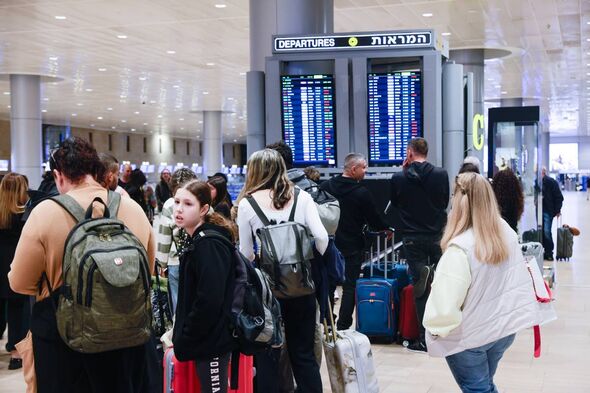
Qatar and Gulf Nations Close Airspace, Global Flights Disrupted as Middle East Tensions Rise
Dubai | June 24, 2025 | 7 | newsQatar, Gulf Nations Shut Airspace Amid Growing Tensions
A fresh wave of travel disruption is sweeping across the Middle East as Qatar, along with the UAE, Saudi Arabia, Bahrain, Kuwait, Lebanon, and Jordan, has shut down its airspace in a coordinated response to rising regional tensions. This rapid and united action marks a dramatic escalation, throwing flight routes into chaos and stranding thousands of travelers.
✈️ What Happened?
Qatar led the move to restrict its skies, citing security concerns tied to the growing conflict in the region. Shortly after, its Gulf neighbors joined in, triggering a chain reaction. With most major air corridors in the Middle East now closed or restricted, the aviation industry is facing major delays, cancellations, and reroutes.
Flights Canceled, Travel Chaos Spreads
🛑 Airlines in Crisis Mode
Flights through Doha’s Hamad International Airport, a critical global hub, have been suspended or diverted. Major airlines including Qatar Airways, Emirates, Lufthansa, and British Airways are now re-routing aircraft, leading to:
-
Longer flight times
-
Rising fuel costs
-
Crew rescheduling
-
Passenger delays
Low-cost carriers are among the worst hit, as they rely on efficient, short-haul routes that now require costly detours.
🧳 Travelers Stranded at Airports
Terminals across the region are crowded with confused passengers. Many are experiencing:
-
Unannounced cancellations
-
Long wait times
-
Missed connections
-
Overnight stays without assistance
Travel forums and social media are full of posts from travelers demanding answers. Trust in airlines and airports is beginning to erode.
🌍 Global Ripple Effect on Tourism and Business Travel
🏨 Hotels & Tour Operators Hit Hard
With peak summer season underway, this crisis is affecting not just flights, but entire tourism networks:
-
Hotel cancellations in Doha, Dubai, Muscat, and Tel Aviv are rising
-
Travel packages are being canceled or rescheduled
-
Cruise lines are skipping Middle East ports
Tourism boards in the UAE, Saudi Arabia, and Oman now face setbacks in their efforts to grow non-oil revenue through international tourism.
📉 Economic & Airline Industry Impact
💸 Airlines Face Major Financial Losses
Flight diversions are not just inconvenient—they’re expensive. Airlines are now facing:
-
Increased fuel costs due to longer routes
-
Disruptions in fleet scheduling
-
Losses in passenger revenue
-
Insurance re-evaluations for routes over the Middle East
Some insurers are already labeling the region “high-risk,” potentially increasing premiums or limiting coverage.
🔥 Wider Regional Conflict Intensifies the Situation
Following U.S. airstrikes on Iranian nuclear sites, countries like Iran, Iraq, Syria, and Israel have also shut down or restricted their airspace. This has created a massive no-fly zone in a region already limited by Russia’s restricted airspace due to the Ukraine war.
✈️ Key Aviation Corridors Blocked
This leaves few safe options for flights connecting Europe, Asia, and Africa—routes that normally pass through the Gulf. Now, these planes must divert thousands of miles, increasing travel time and costs.
⚠️ Airlines and Governments Scramble for Solutions
Aviation authorities, government agencies, and international regulators are watching closely. If tensions rise, we may see:
-
Full travel bans to affected countries
-
Warnings issued by foreign ministries
-
More airline route suspensions
-
Changes in global travel insurance policies
Secondary airports in Muscat, Jeddah, Amman, and Istanbul are now under pressure to handle diverted traffic, raising concerns about safety and overcrowding.
🧠 What the Travel Industry Must Learn Now
This crisis is more than a temporary disruption—it’s a wake-up call. The global travel sector must:
-
Invest in flexible flight planning tools
-
Improve real-time passenger communication
-
Strengthen contingency strategies
-
Offer transparent booking and cancellation policies
Airlines, tour operators, and hotels need to act fast to restore traveler confidence and avoid long-term damage.
⏭️ What Happens Next?
With no end in sight to the airspace closures, the world is watching. A return to normal flight operations may take days or even weeks, depending on diplomatic developments and regional stability.
Until then, global travelers are advised to:
-
Check flight status regularly
-
Avoid layovers in the Gulf if possible
-
Review travel insurance coverage
-
Stay updated via official airline and government sources


